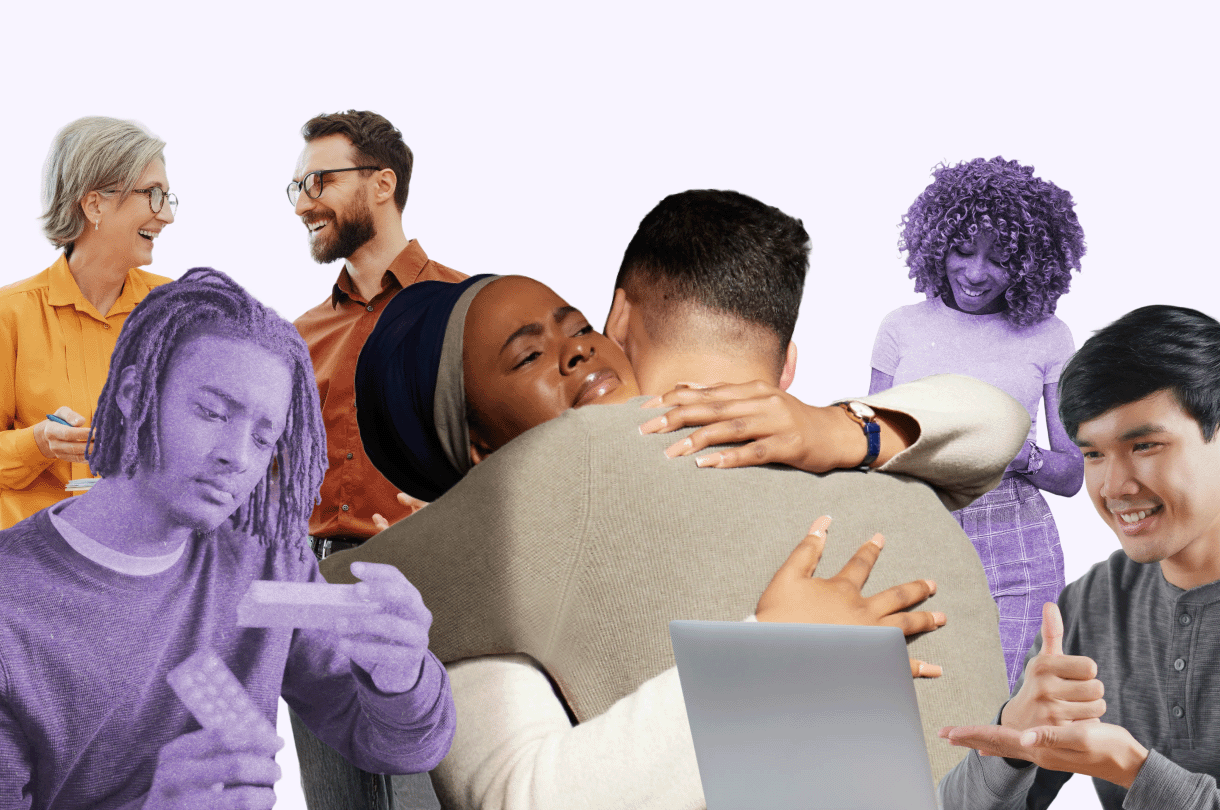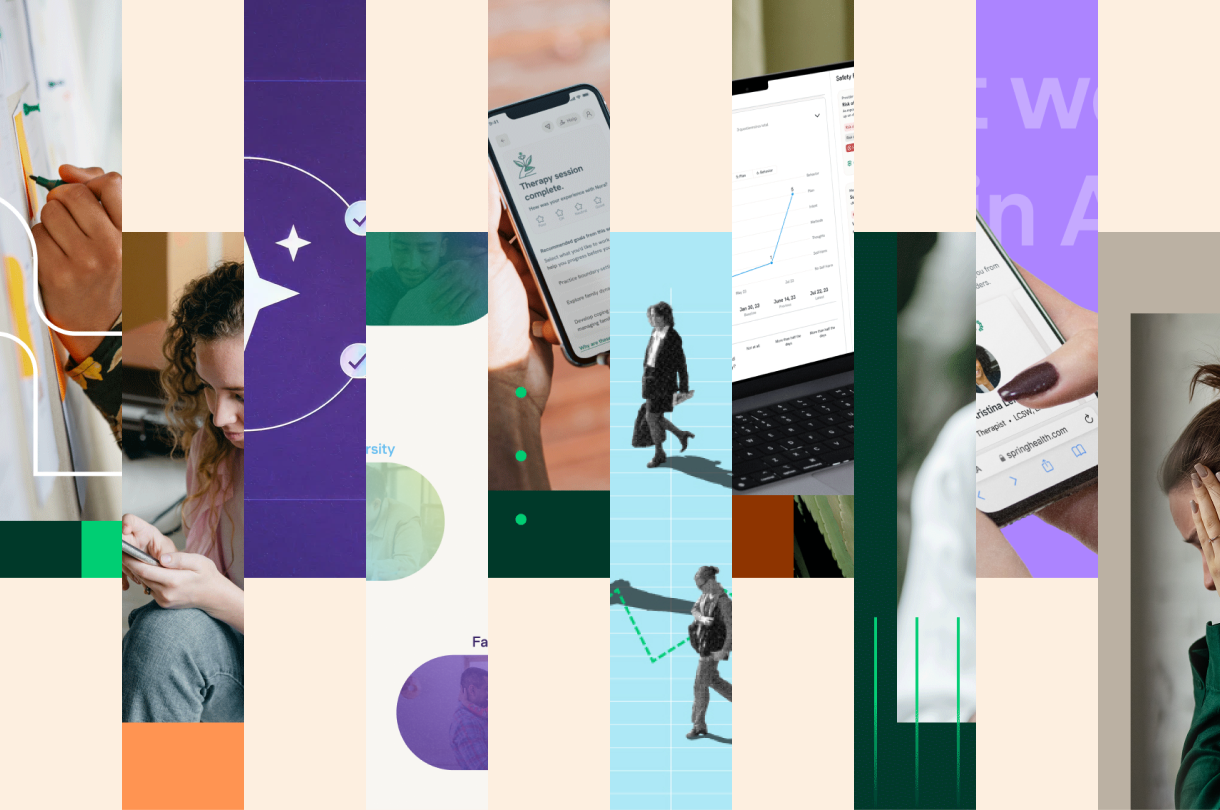In a world where conversations surrounding mental health have gained unprecedented momentum, it’s evident that younger generations are leading the charge.
They not only engage in open discussions and prioritize their mental and emotional well-being, but they also hold higher expectations for the support and benefits provided by their employers.
The significance of catering to Gen Z’s mental health needs can’t be underestimated. By 2025, Gen Z will account for about 27% of the workforce, and this number is projected to reach 30% by 2030.
As their influence in the workplace continues to grow, it will be crucial for employers to recognize and respond to their unique needs, including prioritizing mental health benefits tailored to their well-being.
Among this progressive generation, Gen Z women stand out as a group that places the highest value on having access to mental health services as an employee benefit. Their emphasis on holistic well-being sets them apart as a demographic driving change in the workplace.
Gen Z values mental health benefits more than other generations
LinkedIn’s 2022 U.S. edition Workforce Confidence survey offered some intriguing findings about generational differences in perspectives around mental health. Of the 13,432 respondents surveyed, 16% identified free mental health benefits as a top three priority they’d like to see from employers (more flexibility and four-day workweeks ranked higher).
But when we break those responses down by generation, two particular groups stood out. A substantial 32% of Gen Z respondents (those born between 1997-2012) identified free mental health benefits as a top priority, compared to only 11% of Baby Boomers.
Women are looking for mental health benefits more than men
When comparing gender disparities in the prioritization of mental health benefits, it becomes apparent that women—regardless of age—place greater importance on this issue.
LinkedIn’s survey found that 21% of American women of all ages considered free mental health benefits a top priority, while only 12% of men shared the same sentiment.
Younger women value mental health issues most
The survey found that the highest support for accessible mental health services comes from Gen Z women, with 37% saying they valued it as an employee benefit. The lowest support came from male Boomers, with only 9% rating this coverage as a top priority.
The noticeable contrast in mental health attitudes and experiences across different generations presents an intriguing area for analysis. Several key factors potentially contribute to this divide:
- Generational shifts in mindset and perspectives shape individuals’ responses to mental health challenges
- Older generations often display remarkable mental toughness, having weathered wars, recessions, personal tragedies, and other adversities, which might have fortified their resilience and coping mechanisms
- Younger generations appear to experience reduced mental health stigma, fostering environments where open discussions about psychological well-being are safe and encouraged
While these factors offer valuable insights, delving into modern trends, research, and data provide a more comprehensive understanding of this intricate phenomenon.
Why Gen Z women might be more likely to seek support
Gen Z is a generation that shows a remarkable inclination to openly discuss and seek mental health support.
This positive shift is partly due to the courageous efforts of influential young celebrities like Kendall Jenner, Selena Gomez, Billie Eilish, and Lili Reinhart. By bravely sharing their personal stories and challenges with anxiety, depression, and other mental health conditions—and talking openly about going to therapy—these celebrities help dismantle the barriers that stigma imposes.
Their vulnerability makes it easier for other young women to open up, seek help, and realize they’re not alone in their struggles. Through their influential platforms, these young celebrities are helping foster empathy, understanding, and acceptance, challenging the outdated notions surrounding mental health and paving the way for healthier and more supportive generations.
Understanding the mental health landscape of Gen Z
According to the State of Gen Z Mental Health study, 42% of Gen Z respondents have been diagnosed with a mental health condition. However, only about 20% have sought therapy to address their mental health concerns. Additionally, 60% of Gen Z individuals are currently using medication to help manage their mental health.
These insights tell us that 22% of Gen Zers diagnosed with a mental health condition haven’t been supported by therapy. And 38% of those taking prescription medication to manage their mental health haven’t participated in therapy.
So while Gen Z may be talking openly about their mental health struggles amongst their peers, there is still a massive gap in support for a generation whose most common diagnoses include anxiety, depression, ADHD, and PTSD.
Addressing the gap in mental health support
Gen Z isn’t alone in facing these challenges.
Mental Health America’s (MHA) 2023 State of Mental Health in America report reveals that over half of American adults who experience a mental illness haven’t received treatment. Among them, 28% cite the cost of treatment as a significant barrier. According to the report, around 28 million Americans with a mental illness remain untreated.
In prior decades, the responsibility to seek mental health support rested on individuals, but today, employers are increasingly offering mental health benefits.
These benefits have proven to enhance productivity, engagement, and overall well-being while reducing sick days and improving retention rates. As more members of Gen Z move into the workforce—and eventually, into leadership roles—we can expect to see the demand for these benefits increase.
The impact of burnout and the role of employers
The impact of burnout and stress also can’t be ignored, as it often precedes more severe mental health consequences. Aflac's 2022-2023 WorkForces Report on Workplace Benefits Trends shows that 59% of American workers reported at least moderate levels of burnout.
Notably, 71% of Gen Zers experience moderate levels of burnout, compared to 38% of Boomers. Additionally, 62% of women experience burnout, surpassing the 57% reported by men.
Of those who report high burnout, 52% have also experienced anxiety, 42% experience depression, 40% report trouble sleeping, and 14% have experienced post-traumatic stress.
Empowering Gen Z women’s mental health
Given the rising demand for mental health support, especially among Gen Z women, employers and society must recognize and prioritize the well-being of this demographic.
By tailoring mental health benefits to their specific needs, employers can create a culture of care and support that enhances individual well-being and improves productivity, engagement, and overall job satisfaction. As Gen Z women enter the workforce and assume leadership roles, mental health must remain a top priority.
Investing in comprehensive mental health benefits, fostering inclusive and supportive work environments for Gen Z and beyond, promoting proactive and vulnerable conversations about mental well-being, and addressing the underlying causes of stress and burnout are crucial steps toward empowering the next generation.
By taking these measures, we can create a brighter and healthier future for everyone, where Gen Z women can thrive in all aspects of their lives.
Gain a deeper understanding of Gen Z and learn how to engage a generation dealing with profound uncertainty, anxiety, and stress.

.jpg)
.jpg)







.png)





.png)
.png)
.png)



















